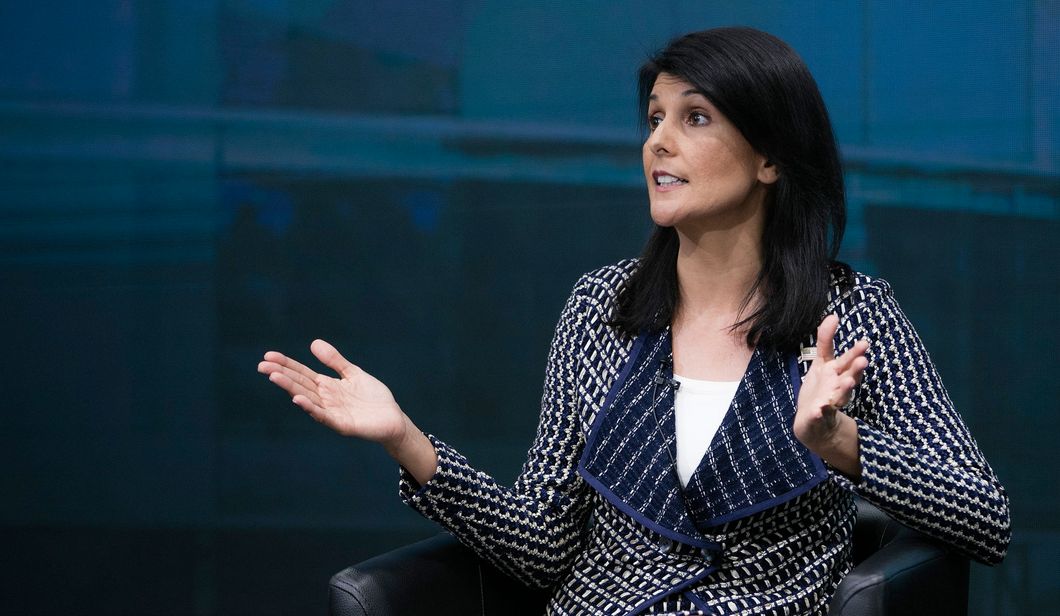In 2010, in the heat of the Tea Party wave, South Carolina chose Nikki Haley to be its 116th governor. A daughter of Indian immigrants, Haley had polled last throughout most of the Republican primary before racking up several prominent endorsements, most notably from former vice-presidential nominee Sarah Palin. She initially governed as a moderate, appointing a Democrat to be her second in command and courting business to spur investment.
By 2014, in the midst of another election, politics took over. When President Barack Obama's Affordable Care Act went into effect, states had the option to expand access to Medicaid on the federal dollar, but Haley refused.
If the state were to expand Medicaid now, 450,000 people would receive $15.8 billion in coverage. 200 lives could have been saved each year at no cost to South Carolina taxpayers at the stroke of Haley's pen, but she refused to accept money coming from the Obama administration.
In 2017, President Donald Trump appointed Haley to the United States' seat at the United Nations, one of the largest aid agencies in the world, and Haley appeared to have less incentive to show deliberate cruelty to poor people.
Amid reports of Russian meddling in U.S. elections and Trump's preference for unilateralism to cooperation, many had expected Haley not to take her role seriously, but she became known for dressing down the Russian ambassador for blocking key U.N. measures. But the world quickly became aware that, unlike other Americans at the U.N., Haley was not a diplomat, she was a politician.
It started innocuously, with a tweet.
After a few months on the job, Haley proclaimed she was "done talking about" the nuclear crisis on the Korean peninsula, a long-simmering issue in diplomatic circles. Several media figures pointed out that the U.N. Security Council is never "done talking" about a crisis until it's over. Still, a public, 140-character comment is hardly the most cogent way to dictate policy, and it isn't likely the U.S. Ambassador meant anything by the tweet.
Over her tenure, Haley began turning her attention to the premier right-wing foreign-policy focus: Israel.
In December, the U.S. mission blocked a Security Council resolution advising U.N. members not to move their embassies to Jerusalem, which the Trump administration was planning to do. In May, after Israeli security forces had killed 58 Gazans during a spat over the moving of the U.S. embassy, Haley praised Israel's "restraint."
Haley's single-minded admiration for Israel often breaks with the U.N.'s goal of defending human rights because of her refusal to recognize wrongdoing in the U.S. ally. As a result, she is trying to dismantle the very framework by which the U.N. deals with human rights abuses.
Most notably, she withdrew from the Human Rights Council in June over its alleged anti-Israel bias (some pointed out that the decision came after the council criticized the Trump administration's family-separation policy). Granted, the H.R.C. has never been the most able defender of human rights because of its own illiberal members. But Haley took issue less with the council's workings than with the fact that it condemns the actions of a particular country.
More subtly, Haley has begun cutting funding to U.N. aid agencies, including the Relief and Works Agency. Trump himself has stated that he was using funding for the agency, formerly at $365 million, now $60 million, as a bargaining chip in peace talks between Israel and Palestinian territories. After the Jerusalem embassy vote, Haley warned that she would be "taking names" of member states that voted in favor of the resolution because "we don't expect those we've helped to target us."
Haley's actions represent a broad shift in U.S. foreign aid policy.
Rather than using aid as a soft-power tool to spur investment in strategically-placed locations, Haley is weaponizing aid agencies to fulfill her own political motives. Any country that unquestioningly supports Israel gets aid dollars, any that does not gets nothing.
This is a page straight from her South Carolina gubernatorial playbook: only give money to politically strategic groups.
She figured out early that expanding Medicaid would not be beneficial because it would be a giveaway from Obama to Obama's voters. By withholding Medicaid dollars, she could tell her base that she had stood up to the government overreach of the Obama administration and fend off primary challengers from her right.
Now, having been given a national stage, Haley has become an increasingly viable presidential candidate, especially after serving under a far-right president. When and if she chooses to run, she will have a tough time distancing herself from her boss, but there will be those who say that she at least can't be as bad as Trump.
Nikki Haley is trying to position herself as a moderate, but her track record as governor and as U.N. ambassador disprove her posturing.
The only question is if Republicans will fall for it come 2024.

















